Yerevan is refreshingly cheerful and relaxing city. It's modern and clean--with plenty of monuments and parks, but none of the artificial grandiosity of Baku. It also has plenty of cheap places to eat and stay--making it a great "base camp" to relax for a bit and explore the surrounding area. Pretty much the closest thing to "home" to be experienced while on the road.
Of course, after trudging up the Ararat Valley, the Traveler knows that the classiness and relative prosperity seen here is not the experience of the average Armenian
.
After settling into a hostel, the Traveler wanders around for a bit to soak in the subtleties of city. He notices relics of the Soviet era--amidst the modern restaurants and upscale shops. Old Russian Ladas still chug through the streets. And the stern policemen still wear those oversized police hats--which actually look quite humorous when the policeman is of short stature!
He also notices that, while regular Armenians are quite friendly and helpful, shopkeepers generally are not. On one ocasion he enters a shops, and waits for the shopkeeper to finish with another customer, then when his turn comes, the shopkeeper gruffly tells him he's closing now. Perhaps this is a throwback to communist times when, without competition, shopkeepers had litte motivation to treat their customers nicely...
Of the three Caucuses countries, Armenia is the one that feels the most Soviet. Many of the signs are still in Russian (you'll be hard pressed to find anything in Russian in Georgia!) This is no coincidence
. Georgia sees itself as more connected with America and the West. Azerbaijan sees itself more connected culturally to Turkey, and Armenia sees itself as more connected to Russia.
"No one can attack us because Russia has our back!" one Armenian confidently claim. Armenians prefer to see Russia as a protective "Mother" rather than a former occupier. However, from what I've read, Russia was actually supporting BOTH sides during the Armenian-Azerbaijani conflict.
I think some of this sense of connection goes back to Ottoman times, when Armenians sided with the Russians in fighting the Turks. However, the Russians weren't able to do much when the Armenians were massacred en masse as a result... Still, I guess, Russia is the best friend Armenia has in this rather unfriendly part of the world...
It's a few years later, when the Traveler reads in the new that Azerbaijan attacks and captures a piece of disputed territory, using weapons they had recently purchased from
... Russia... that he wonders how Armenians must be feeling about their long time ally.
The Independence Celebration
Today is Armenia's Independence Day. There's not a whole lot of visible celebration going on. There is a big concert going on in the main square, which the Traveler is eager to experience. Oddly, instead of Armenian music, the large band is playing Latin/Caribbean music. Their only connection with Armenia is that they're the band of Yanni, the world famous Armenian performer (although Yanni isn't present). One fellow is playing the Duduk along with the band, which does give it a slight Armenian flavor.
Gazing at the crowd, the Traveler doesn't really sense any joy or excitement as this country celebrates its independence from the Soviet Union. None of the whoops or shouts of celebration you would here at an independence celebration in say, Mexico or Turkey. It feels like coming here is just something to do in the evening, with no deeper meaning
.
Perhaps there's something bittersweet about this celebration in people's minds: on one hand, there's the joy of finally having their own country with their own identity after centuries of being ruled by outside--and often oppressive--empires. Finally Armenians are in control of their own destiny. On the other hand, as people have mentioned already--there's the awareness that in many ways life is much worse now than it was under Russian rule. And from the sight of the endless industrial remains, the Traveler is tempted to agree with their assessment.
The Traveler ponders on this he strolls down the long pedestrian mall, lined with fancy cafes and gelatterias... pausing to listen to a busker or two. Here you feel like you could be in any city of Germany or England.
The War Museum
Next morning it's time to climb some of the steep hills surrounding downtown Yereven, with intriguing structures at the top
. The Traveler starts with the "Mother Armenia" statue, a statue of a muscular woman carrying a sword. It used to be a statue of Stalin, until the Soviet Union decided to de-Stalinize the country, erecting a Soviet style statue here instead.
Inside the base of the statue is a war museum. Still a communist feel to it, with a uniformed woman who follows the Traveler (the museum's only visitor) from room to room, turning the lights on and off for him.
The first part of the museum is dedicated to the role Armenia played in World War II, fighting for Russia. Then the second part tells about the more recent war with Azerbaijan, obviously from the Armenian point of view.
The Traveler is struck by how absolutely contradictory the Azerbaijani and Armenian narrative is of this conflict--both sides are absolutely convinced that they were the victims, invaded and massacred by the other side. Both sides see the other as evil murderous monsters
. Which feels really strange to him... since he's been on both sides of the border and found Armenians and Azerbaijanis to be very decent, respectful people.
The hostel manager sums it up well: "When we're in Russia, Armenians and Azerbaijanis get along just fine--we don't feel animosity towards each other. But here in Armenia, you're surrounded by so much hatred--you start feeling that hatred too... you just can't help it."
That's exactly the same hatred the Traveler had sensed in Azerbaijan. He did hear one voice of reason there though. A young Azeri told him, "I know that there's much more to this than just a conflict between Armenians and Azerbaijanis. The Russians and Western powers were backing Armenia for their own reasons--that's the real reason why we lost Karabakh. Actually Russia was supporting both sides, for their own ends."
Most people seem don't seem to see the big picture--prefering just to hate and blame an entire ethnic group for the evils and injustices committed
.
He ponders this as he head out to the rather empty looking amusement park behind the statue, then on to explore some of the hilltop neighborhoods, before winding my way down to the city center in the valley.
He decides to just keep walking west to see what he finds. Here, after pausing to take a picture of a monument, an undercover officer comes to question him.
"What are you doing here? Why are you taking pictures?" Is he a leftover KGB agent? Nope. His job is to make sure no one takes any pictures of the nearby gigantic American Embassy!
So much has changed here in Armenia... and yet... so little...
Day 7: The Armenian Genocide Memorial
Next, the Traveler heads over to a place he feel is an important part of his Armenian experience: the Armenian Genocide Museum
. This Genocide happened a hundred years ago, but seems to be very vivid in people's minds. This museum might help explain why.
It's across the river and up atop a hill away from the city center. Up the hill it feels like you're in the middle of a Mediteranean style rural area... and the top, solemn classical music can be heard as you approach the series of pillars pointed inward towards an eternal flame, with a spire piercing the sky. Nearby is a small orchard of trees, each planted by a foreign dignitary.
He enters the museum which shows disturbing images of starvation and brutality inflicted on the Armenian population. The museum combines historical documentation--but also some blatant war propaganda used by the Allies in World War to paint the Ottomans as horrible monsters--propaganda created by European powers who had been itching to destroy the Ottoman Empire for hundreds of years.
The more he wanders through the museum, the less concerned he feels though about things that happened 100 years ago, and the more concerned he is about what how this is affecting the Armenian psyche today
.
"You need to know because Turkey will try to do the same thing to other people" "If we opened the border with Turkey, they would invade us and destroy us". These are things he's heard repeatedly in his travels. It seems that in schools, at home, and in the media, young Armenians are taught that Turks all all bloodthirsty, murderous people. Of course, someone who has traveled around Turkey would know that this couldn't be farther from the truth.
Quite a contrast with young Israelis--some say they'd love to move to Germany--and they certainly don't see 21st century Germans and murderous monsters. Of course, unlike Turkey, Germany has come clean, fully admitted that a genocide took place--and has continuously made generous compesation to the survivors.
Some say that that's exactly why Turkey doesn't want to come clean about the what was done to the civilian population. They saw what the Germans have had to pay out, and they don't want to have to do the same
.
Anyways, in my opinion, I think it would be better to focus on the present, and be a bit more pragmatic in relationships between neighbors. I mention to people that Bulgaria and Greece have a lot of resentment towards Turkey as well--however the borders are open and people and products move freely back and forth, to the benefit of all involved (and no sign that Turkey is trying to "re-invade" these countries). Also, Iraqi Kurds have good reasons to not like Turkey, however they try very hard to stay in good relationship with Turkey. Why? They're a landlock region and are very dependant on Turkey for just about everything. It seems that Armenia trying to "punish" Turkey by keeping the border closed, is just punishing itself.
You do catch a strange sight. A bus leaving Yerevan that clearly says "Istanbul". What the--? you think... Actually its for Armenians living in Turkey who, when the want to visit their motherland, instead taking 30 minutes to get from Yerevan to the nearest Turkish highway, they have to make a grueling 15 hour trek across Armenia and through Georgia on partly unpaved roads
...
Also, as he finds out later, Turkish products are sold in Armenian markets--all through Georgia of course. In fact, there are Azerbaijani vegetables sold here as well (through) Georgia... So much for the "closed borders".
Similarities between the Armenians and the Jews
As the Traveler wanders back towards central Yerevan, he ponders more on the similiarities and differences between two chronically persucuted people: The Armenians and the Jews. He sees a lot of similarities with between them--and some distinct differences.
Both Jews and Armenians suffered mass persecution and were scattered all over the world. Both groups have prospered in the countries where they settled, and held strong to their ethnic and religious identity. You go to Armenian neighborhoods in Los Angeles and you'll see Armenian private schools, and kids shouting at each other in Armenian
... even though their ancestors immigrated there many decades ago.
Both Jews and Armenians finally had the opportunity have their own independent country in their homeland. Both switched from being the persecuted to the persecutors, driving out many of those not of their ethnicity from their new "nation".
But the similarities start to end there. Israel has gone on to built a strong, progressive economy (with major problems of course). Armenia is littered with the abandoned ruins of what clearly seems to have been a much more prosperous era under communist USSR. People are pessimistic and many see that they're only hope of a better life is to leave the country.
What went different here in Armenia? Well, for one thing, after independence, the Armenian diaspora didn't all come rushing back to their country. They we not suffering any persecution in the countries they'd immigrated to (as were the Jews), and didn't have that zealous fervour to bring their know how and money to rebuild their country
.
Later he asks the hostel manager about this. The guy explains "the Armenian diaspora sends a lot of money to their relatives here--but not to start businesses, just money to spend. My father used to be quite wealthy, living in Russia and he'd send a lot of money to his brothers here. Then one day my father had financial difficulties and they were like 'where's our money?!' All those remmitances from abroad aren't doing anything to build a real economy in Armenia."
I don't know if this is a common feeling, or just the feeling of one burned out Armenian donor.
Back the the Israel/Armenia contrast: Isreal has access to the sea... Armenia does not. Israel has powerful lobbyist influencing governments around the world in its favor... Armenia does not.
Still... it doesn't fully make sense why the Armenian diaspora haven't been able to pool their know how and resources, and create a functional and prosperous homeland
.
Other Encounters In Yerevan
The Yerevan hostel turns out to be a great place to connect with folks eclectic folks from all over the world.
There's Boikuntha, an Indian fellow who came to Armenia to study medicine. He's actually a musician as well and joins the Traveler for a Parkbench session. He's also offers some interesting thoughts on India:
"Democracy doesn't work in India. As soon as one party tries to start some sort of development project, the other parties will automatically oppose it--so nothing can get done..."
On religion... "I'm a Hindu, but I think Christian missionaries have done a good thing in East India. There the Hindus did nothing for the tribal people. So when the missionaries came and started projects to people, they converted in mass to Christianity"
He told stories of being sent by his Hindu parents to a Christian school where he was forced to read the Bible, because they felt the Christian schools gave a superior education
.
Then there's an Iranian fellow Amine who shares all sorts of insights into the real life in Iran.
"The average educated Iranian is quite secular, enjoying modern art and music with not much interest in religion--except during the holy period of Ashora--then people become very religious."
He tells a story of how you get robbed in Iran: A veiled brushes against you in the market, the she screams "this guy exposed me!" Immediately a crowd of me come and beat you up. And when you get back on your feet your wallet is missing...
Then there's a Belgian biker who tells some great stories an shows pictures of exploring some of the impossible to reach monastaries in Ethiopia.
"Monks there are kind of like hobos in America--people who just can't fit in with society--so in Ethiopia, they become monks!"
All this is a reminder to the Traveler that his exploration of the world's cultures is just beginning.
Armenia's Capital
Monday, September 17, 2012
 Yerevan, Armenia
Yerevan, Armenia
Other Entries
-
38A Very Frustrating Night
Sep 116 days prior Sheki, Azerbaijanphoto_camera19videocam 0comment 0
Sheki, Azerbaijanphoto_camera19videocam 0comment 0 -
39Barefoot in the Fairy Mountain Forest
Sep 116 days prior Qax, Azerbaijanphoto_camera29videocam 0comment 0
Qax, Azerbaijanphoto_camera29videocam 0comment 0 -
40Gypsy Villages
Sep 125 days prior Zaqatala, Azerbaijanphoto_camera24videocam 0comment 0
Zaqatala, Azerbaijanphoto_camera24videocam 0comment 0 -
41Singing for the Police
Sep 125 days prior Yevlakh, Azerbaijanphoto_camera8videocam 0comment 0
Yevlakh, Azerbaijanphoto_camera8videocam 0comment 0 -
42A Pleasant Surprise
Sep 125 days prior Mingachevir, Azerbaijanphoto_camera11videocam 0comment 0
Mingachevir, Azerbaijanphoto_camera11videocam 0comment 0 -
43Hiking with Company
Sep 134 days prior Bayan, Azerbaijanphoto_camera4videocam 0comment 0
Bayan, Azerbaijanphoto_camera4videocam 0comment 0 -
44The War Heroes
Sep 134 days prior Padar, Azerbaijanphoto_camera6videocam 0comment 0
Padar, Azerbaijanphoto_camera6videocam 0comment 0 -
45A Long Day of Hiking
Sep 143 days prior Vandam, Azerbaijanphoto_camera6videocam 0comment 0
Vandam, Azerbaijanphoto_camera6videocam 0comment 0 -
46Market Town
Sep 143 days prior Bunud, Azerbaijanphoto_camera8videocam 0comment 0
Bunud, Azerbaijanphoto_camera8videocam 0comment 0 -
47Dreamy Forest Hike
Sep 143 days prior Kurbanefendili, Azerbaijanphoto_camera8videocam 0comment 0
Kurbanefendili, Azerbaijanphoto_camera8videocam 0comment 0 -
48Encounters on the Way
Sep 143 days prior Xanagah, Azerbaijanphoto_camera4videocam 0comment 0
Xanagah, Azerbaijanphoto_camera4videocam 0comment 0 -
49Getting my Borsh Fix
Sep 152 days prior Goychay, Azerbaijanphoto_camera2videocam 0comment 0
Goychay, Azerbaijanphoto_camera2videocam 0comment 0 -
50Another Heyder Parki
Sep 152 days prior Ağdaş, Azerbaijanphoto_camera3videocam 0comment 0
Ağdaş, Azerbaijanphoto_camera3videocam 0comment 0 -
51Finally... Real Restaurants!
Sep 161 day prior Ganja, Azerbaijanphoto_camera9videocam 0comment 0
Ganja, Azerbaijanphoto_camera9videocam 0comment 0 -
52Tea with the Retirees
Sep 161 day prior Qazax, Azerbaijanphoto_camera7videocam 0comment 0
Qazax, Azerbaijanphoto_camera7videocam 0comment 0 -
53Playing on the Pipeline
Sep 161 day prior Ağstafa, Azerbaijanphoto_camera1videocam 0comment 0
Ağstafa, Azerbaijanphoto_camera1videocam 0comment 0 -
54Nearing the End
Sep 161 day prior Qarapapaq, Azerbaijanphoto_camera2videocam 0comment 0
Qarapapaq, Azerbaijanphoto_camera2videocam 0comment 0 -
55Armenia's Capital
Sep 17 Yerevan, Armeniaphoto_camera105videocam 0comment 0
Yerevan, Armeniaphoto_camera105videocam 0comment 0 -
56Beyond the Industrial Ruins
Sep 181 day later Nor Kharberd, Armeniaphoto_camera3videocam 0comment 0
Nor Kharberd, Armeniaphoto_camera3videocam 0comment 0 -
57Singing for the Church Guardian
Sep 181 day later Marmarashen, Armeniaphoto_camera7videocam 0comment 0
Marmarashen, Armeniaphoto_camera7videocam 0comment 0 -
58Another Dreary Town
Sep 181 day later Mkhch'yan, Armeniaphoto_camera6videocam 0comment 0
Mkhch'yan, Armeniaphoto_camera6videocam 0comment 0 -
59Armenian Hospitality
Sep 181 day later Dimitrov, Armeniaphoto_camera4videocam 0comment 0
Dimitrov, Armeniaphoto_camera4videocam 0comment 0 -
60Westside Towns
Sep 192 days later P’arak’ar, Armeniaphoto_camera1videocam 0comment 0
P’arak’ar, Armeniaphoto_camera1videocam 0comment 0 -
61Farm Village
Sep 192 days later Musalar, Armeniaphoto_camera7videocam 0comment 0
Musalar, Armeniaphoto_camera7videocam 0comment 0 -
621,700 Year Old Church
Sep 192 days later Echmiadzin, Armeniaphoto_camera20videocam 0comment 0
Echmiadzin, Armeniaphoto_camera20videocam 0comment 0 -
63Swimming in the Canyon
Sep 203 days later Ashtarak, Armeniaphoto_camera30videocam 0comment 0
Ashtarak, Armeniaphoto_camera30videocam 0comment 0 -
64Continuing the Hike South
Sep 214 days later Burastan, Armeniaphoto_camera2videocam 0comment 0
Burastan, Armeniaphoto_camera2videocam 0comment 0 -
65Farm Country
Sep 214 days later Dalar, Armeniaphoto_camera3videocam 0comment 0
Dalar, Armeniaphoto_camera3videocam 0comment 0 -
663 Beautiful Fans
Sep 214 days later Artashat, Armeniaphoto_camera10videocam 0comment 0
Artashat, Armeniaphoto_camera10videocam 0comment 0 -
67A Sun-scorched Stretch of Road
Sep 214 days later Taperakan, Armeniaphoto_camera3videocam 0comment 0
Taperakan, Armeniaphoto_camera3videocam 0comment 0 -
68A Friendly Audience
Sep 214 days later Nor Kyank, Armeniaphoto_camera2videocam 0comment 0
Nor Kyank, Armeniaphoto_camera2videocam 0comment 0 -
69Harvesting the Grapes
Sep 214 days later Vosketap’, Armeniaphoto_camera3videocam 0comment 0
Vosketap’, Armeniaphoto_camera3videocam 0comment 0 -
70A Disappointing Ending
Sep 214 days later Ararat, Armeniaphoto_camera5videocam 0comment 0
Ararat, Armeniaphoto_camera5videocam 0comment 0 -
71Soviet Style Apartment
Sep 225 days later Abovyan, Armeniaphoto_camera4videocam 0comment 0
Abovyan, Armeniaphoto_camera4videocam 0comment 0 -
72Radio Tower Town
Sep 225 days later Balahovit, Armeniaphoto_camera9videocam 0comment 0
Balahovit, Armeniaphoto_camera9videocam 0comment 0 -
73Beyond the Hilltop
Sep 225 days later Mayakovski, Armeniaphoto_camera1videocam 0comment 0
Mayakovski, Armeniaphoto_camera1videocam 0comment 0

 Yerevan, Armenia
Yerevan, Armenia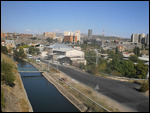
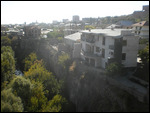
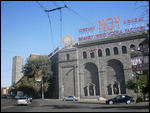
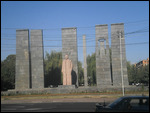
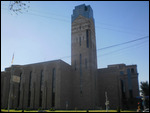
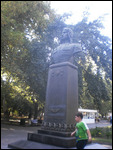

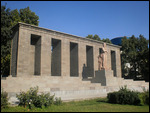
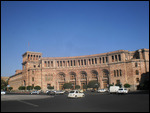
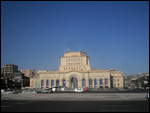
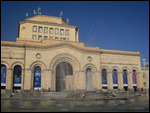
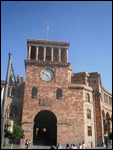
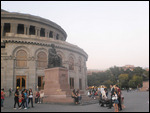
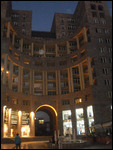
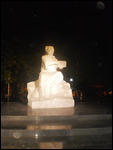


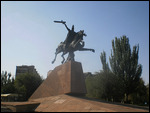
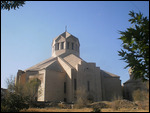
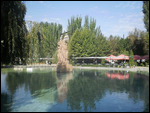
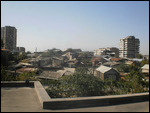
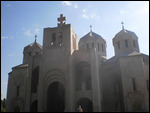
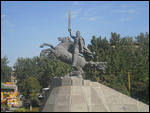
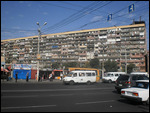
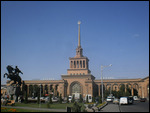
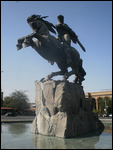
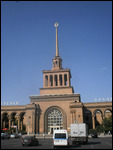
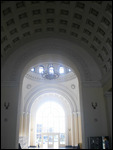
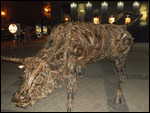
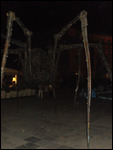
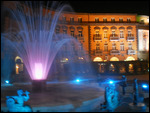
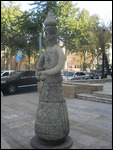
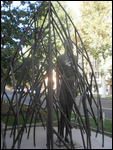
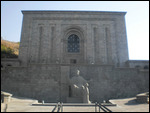
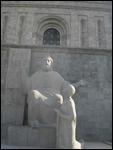
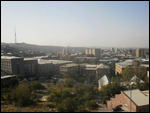
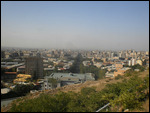
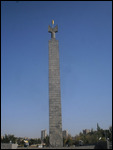
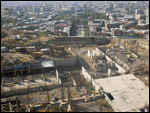
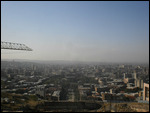
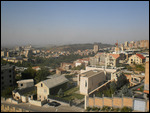
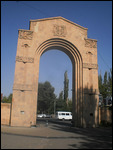
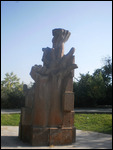
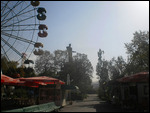
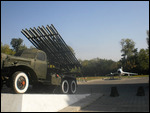
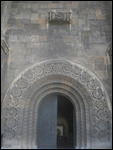
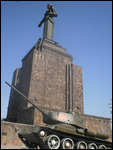
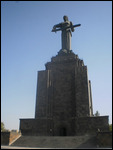
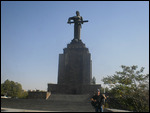
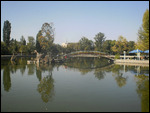
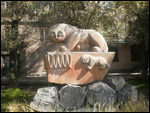
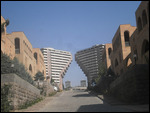
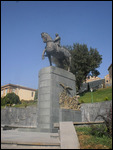
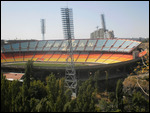
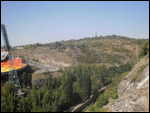
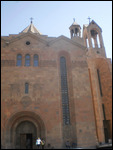
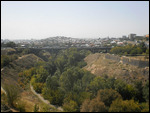
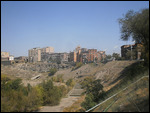
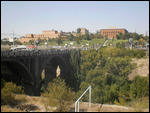
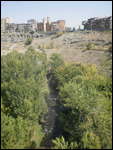
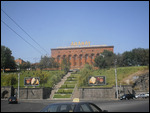
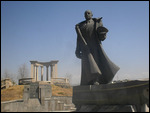
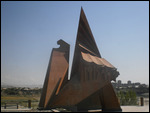
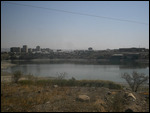
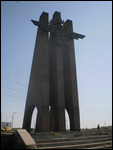
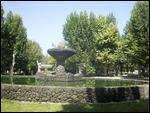
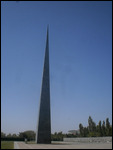
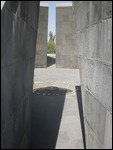
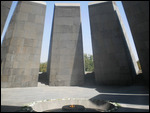
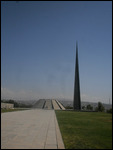
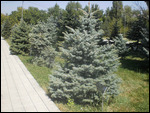
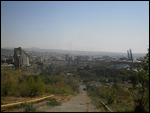
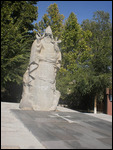
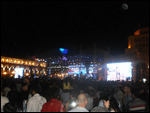
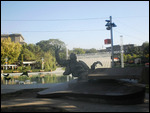
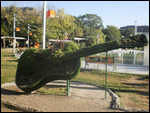
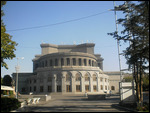
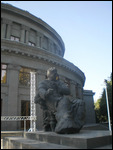
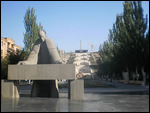
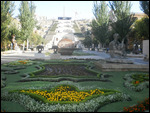
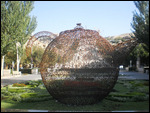
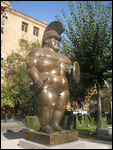
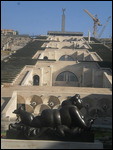
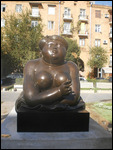
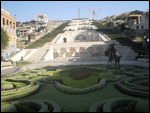
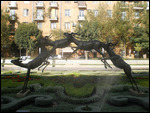
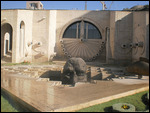
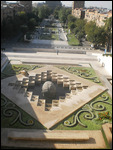
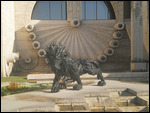
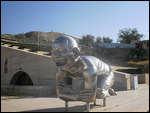
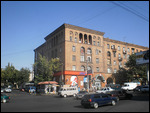
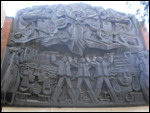

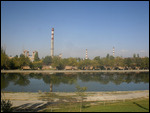
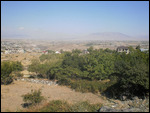
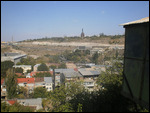
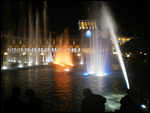
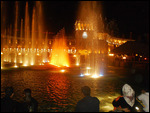
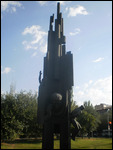
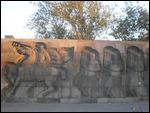
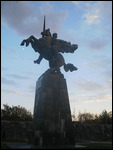
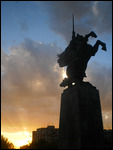
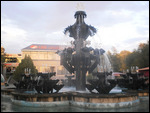
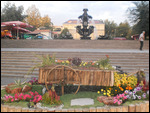
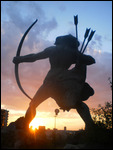
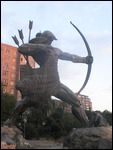
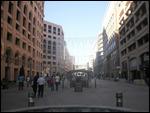
2025-05-22